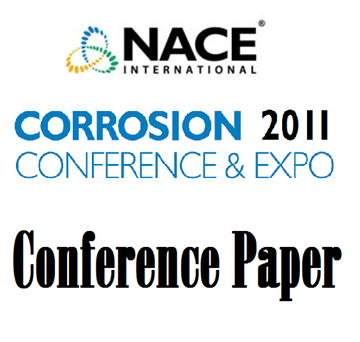Search
09332 Multiple Corrosion Mechanisms in a Crude Distillation Overhead System
Also Purchased
11360 Corrosion in Crude Distillation Unit Overhead Operations: A Comprehensive Review
Product Number:
51300-11360-SG
ISBN:
2011 11360 CP
Publication Date:
2011
$20.00
98585 CRUDE UNIT OVERHEAD CORROSION CONTROL
Product Number:
51300-98585-SG
ISBN:
98585 1998 CP
$20.00
01538 CONTROL OF SALT-INITIATED CORROSION IN CRUDE UNIT OVERHEAD SYSTEMS
Product Number:
51300-01538-SG
ISBN:
01538 2001 CP
$20.00




